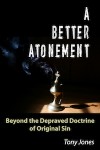This week, Scot Miller is blogging about Robert Gagnon’s book, The Bible and Homosexual Practice: Texts and Hermeneutics, which many readers of this blog are sure will convince Scot and me that we’re wrong about the gays. -TJ
To be honest, I hadn’t even heard of Robert A. J. Gagnon until I read a comment on Tony’s blog giving credit to Gagnon for presenting “overwhelming evidence of the Bible’s unequivocal opposition to homosexual behavior.”
I have since discovered that Tony’s commentator is not alone in his praise of Gagnon. In fact, so many people seem to appeal to Gagnon in defense of the traditional notion that homosexual practice is a sin that Tony thought that someone should address Gagnon’s magnum opus, The Bible and Homosexual Practice: Texts and Hermeneutics (2001).
Since regular readers of Tony’s blog know that Tony has many books to read on his desk and his bedside and his easy chair, he asked me to review Gagnon’s book.
First of all, Tony and I would like to thank Rev. Joseph Hedden, Jr., pastor of Emmanuel Reformed Church of the United Church of Christ in Export, PA, for letting me borrow his copy of Gagnon’s book. Pastor Hedden is a gentleman and a scholar and a generous soul for lending me a book which he purchased for $39. (I took very good care of the book, Joseph, and I promise to return it as soon as I’m finished blogging about it.) Please check out Pastor Hedden’s blog at hills-church.org.
Before I launch into my review of Gagnon (I hope to post five more times about the book), I think it’s important for me to disclose how I am approaching Gagnon’s book.
In his classic work, Truth and Method (2nd rev. ed), Hans Georg-Gadamer argues that understanding requires developing an awareness of one’s biases, that “all understanding inevitably involves some prejudice” because prejudice is inescapable (Truth and Method, p. 270).
Each of us begins in a particular place at a particular time with particular assumptions. It is part of the human condition that we already bring these fore-understandings and anticipatory judgments to every act of interpretation.
So having a prejudice isn’t necessarily bad; indeed, Gadamer rejects the idea that prejudice something necessarily negative, for one can have good prejudices, like the prejudice to be open to the meaning of a text.
The problem is when one is unaware of one’s prejudices and substitutes one’s own prejudice for understanding the object of interpretation. So it is always important to be aware of one’s situation in approaching the text. (If you’re interested, Andrew Crome of the University of Manchester has a helpful discussion of Gadamer and Prejudice in Interpretation.)
I would like to disclose three of my prejudices I brought to my reading of Gagnon. Since this post is already too long, I’ll offer the first of my prejudices in this post, and two other prejudices in my next post.
First: Fidelity to the biblical message is important to me. I am a Christian, and how I understand God and salvation and sin and grace have been mediated to me through the Bible. I am interested in the Bible as a participant, not as a detached observer.
To borrow an image from Elizabeth Anscombe via Hilary Putnam, “…the difference between the religious person and the atheist is like the difference between the person who sees the stained-glass windows from the outside and the person who sees the stained-glass windows from the inside” (p. 96).
The question of the meaning of the biblical message is not academic or incidental to me, because I look at the Bible as an “insider.” So it is important to me that I correctly understand what the Bible says, and that requires careful interpretation of the Bible.
Given the divisive nature of the dispute between Christians who think homosexual practice is a sin and those Christians who don’t, I would hope that every Christian who comes to this dispute would share this prejudice. (And I would hope that nonbelievers and skeptics would also prefer interpretations of the biblical message that are honest and accurate as well.)
















